Developer increases proportion of affordable homes from 27% to 35%
Developer Grosvenor has beefed up the number of affordable homes on its £500m build-to-rent housing scheme in Bermondsey, south east London, in an attempt to get the project past the capital’s mayor.
In February Southwark council threw out the firm’s initial proposals to build 1,342 homes, of which only 27% would have been affordable, on the site of the old Peek Freans biscuit factory.
The scheme was later called in by London mayor Sadiq Khan.
Eight months after it was initially rejected Grosvenor has now increased the percentage of the scheme’s affordable homes to 35%, a figure which would technically meet the local council’s minimum requirement threshold.
The revamped plans have also introduced social rent-equivalent homes, along with build-to-rent properties.
Of the new 35% figure, nearly a third (30%) will be social rent equivalent – around 140 homes – and 70% at discounted market rent.
The new plans have also increased the heights of a number of buildings by between one and seven storeys and cut the amount of retail space on the scheme by 14%.
A 600-place school is still on the table, as are workspace units for local businesses.
A GLA consultation on the scheme started last week, and a public hearing is expected to consider the proposals before the end of this year.
Speaking as the new plans were published Simon Harding-Roots, executive director, Grosvenor Britain & Ireland, said: “Our original planning application was not good enough. We acted in good faith, but it didn’t meet the council’s expectations.
“Since then, we have worked hard to address the clear call from the community, council and mayor to deliver more affordable housing whilst ensuring the project, and its many other benefits, can become a reality.”
Back in February Southwark council said of the development, designed by architect KPF, that it failed “to provide the maximum reasonable amount of affordable housing and the affordable housing offered would be at a cost which would not be affordable to those in greatest housing need”.



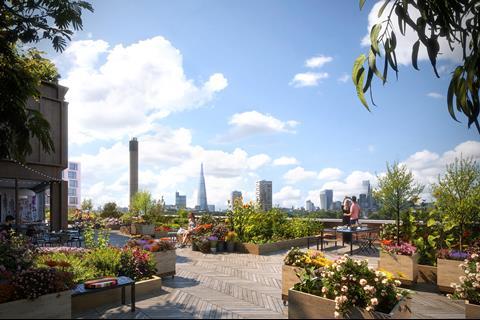
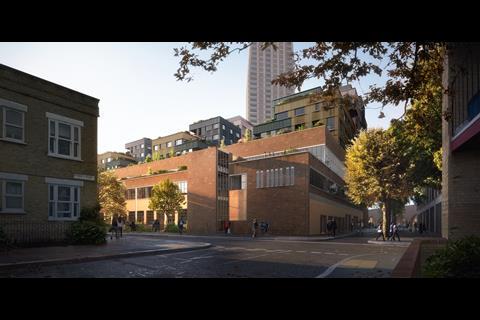
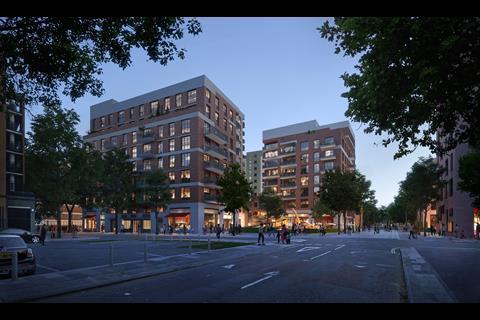
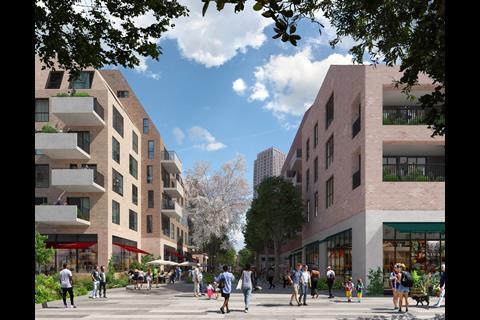
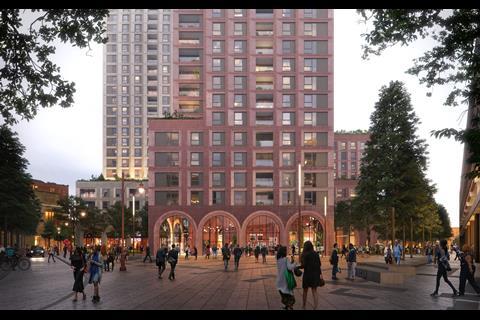
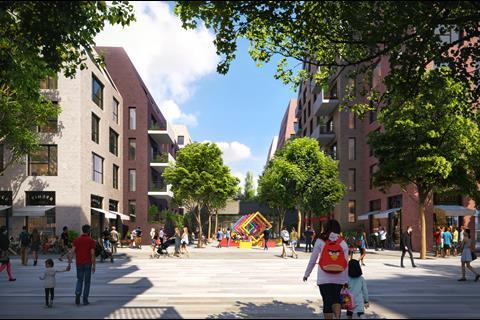
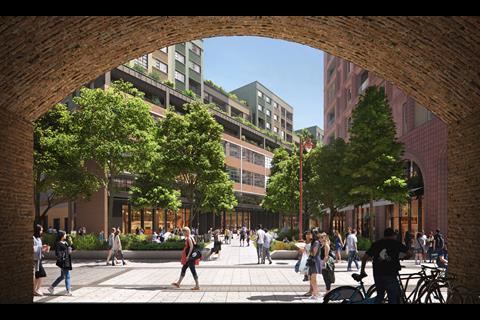







No comments yet